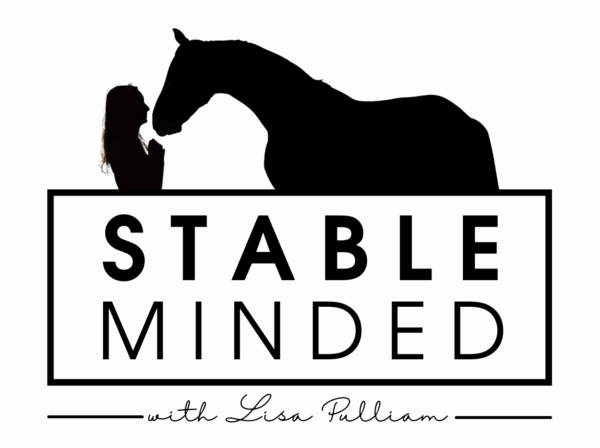Horsemanship Meets Humanship
The skills and benefits gained through equine-assisted coaching, therapy, and learning are extensive. With all equine-assisted services, a customized growth plan is collaboratively envisioned to target specific goals and measure outcomes.
Stableminded equine-assisted counseling, coaching, and learning programs offer a unique opportunity for cultivating emotional resiliency, improving relationships, and developing leadership skills.

Why Horses?
What is it about partnering with horses in a counseling, coaching, or learning session so powerful?
Horses seek connection.
As herd animals, horses experience secure and insecure attachments as well as social dynamics as they learn to survive and thrive with each other as well as in relationships with us.
Horses respond to heart rate.
Because of this sensitivity, we can observe and learn how our behavior impacts them and vice versa, growing in co-regulation ability and empathy.
Horses respond to the environment.
Horses have a fully active brain and nervous system, enabling them to respond to the environment and other living creatures for the sake of survival. They are not mirroring us. They are responding to us, providing us with valuable information to explore our patterns of interacting with others. When we discover these patterns, we can begin the growth process and develop new habits of being in this world.
Regulation and Decision-Making
learning how to respond to the mind and body in relationship
Each session includes activities designed to foster emotional and physical regulation along with ownership of the growth process through collaborative planning. These activities often occur at the beginning and end of the session, sometimes with and without the horses. They translate to foundational skills essential for everyday experiences.
| Lifemanship Skill | Horsemanship Skill |
| Session Check-In | Observing the state of weather, environment, and experiences impacting the herd. |
| Session Planning | Based on the state of the horse partner and self, determine the best interaction and exercises for the session. |
| Observing Self/Others | Observing herd interaction and horse partner. |
| Rating of Stress/Anxiety | Observing signs of stress/relaxation in horse partner and exploring the role of self. |
| Somatic System Grounding, such as 5-4-3-2-1 Mindfulness | Somatic co-regulation is evidenced by breaths, yawns, and relaxation signs. |
| Body Scan | Observing the horse’s body movement. |
| Box and Ball Breathing | Matching horse breaths with the human breathing. |
| Thumbs Up/Down | Choosing participation level with willingness and commitment. |
| Walking in Step | Syncing up to create a connection. |
| Bouncing Ball, Swinging Rope, Drumming | Using rhythm to create regulation. |
Trauma-Informed Core Principles
understanding the brain-body-relationship connection
The equine-assisted coaching and learning experiences are built upon trauma-informed principles that explain the way our body and brain responds to pain and the threat of harm as well as how new habit and mindsets are formed.
| Human Principles | Horse Principles |
| Understanding the Human Brain & Body | Understanding the Horse Brain & Body |
| Body's Response to Triggers, PTSD, Anxiety | Evidence of the Survival Response in Fight-Flight-Freeze-Fawn |
| Human Heart Rate | Horses Heart Rate |
| Human Breathing Rate | Horses Breathe Rate |
| Human Relationship Principles - Co-dependency, Controlling, Compromising, Abuse | Herd Dynamics - Alpha, Prey, Predator |
| Boundaries and Leadership | Drive Lines/Quadrants |
| Confidence and Compassion | Pressure/Release |
| Arousal Continuum | Window of Tolerance |
| Learned Helplessness | Learned Helplessness |
| Neuroplasticity | Classical Conditioning and Behavior Change |
| Attachment Theory | Natural Lifemanship Principles of Connection with Attachment and Detachment |
| Human Body Language | Horse Body Language |
| Mind-Body-Soul Health | Wheel of Horsemanship |
